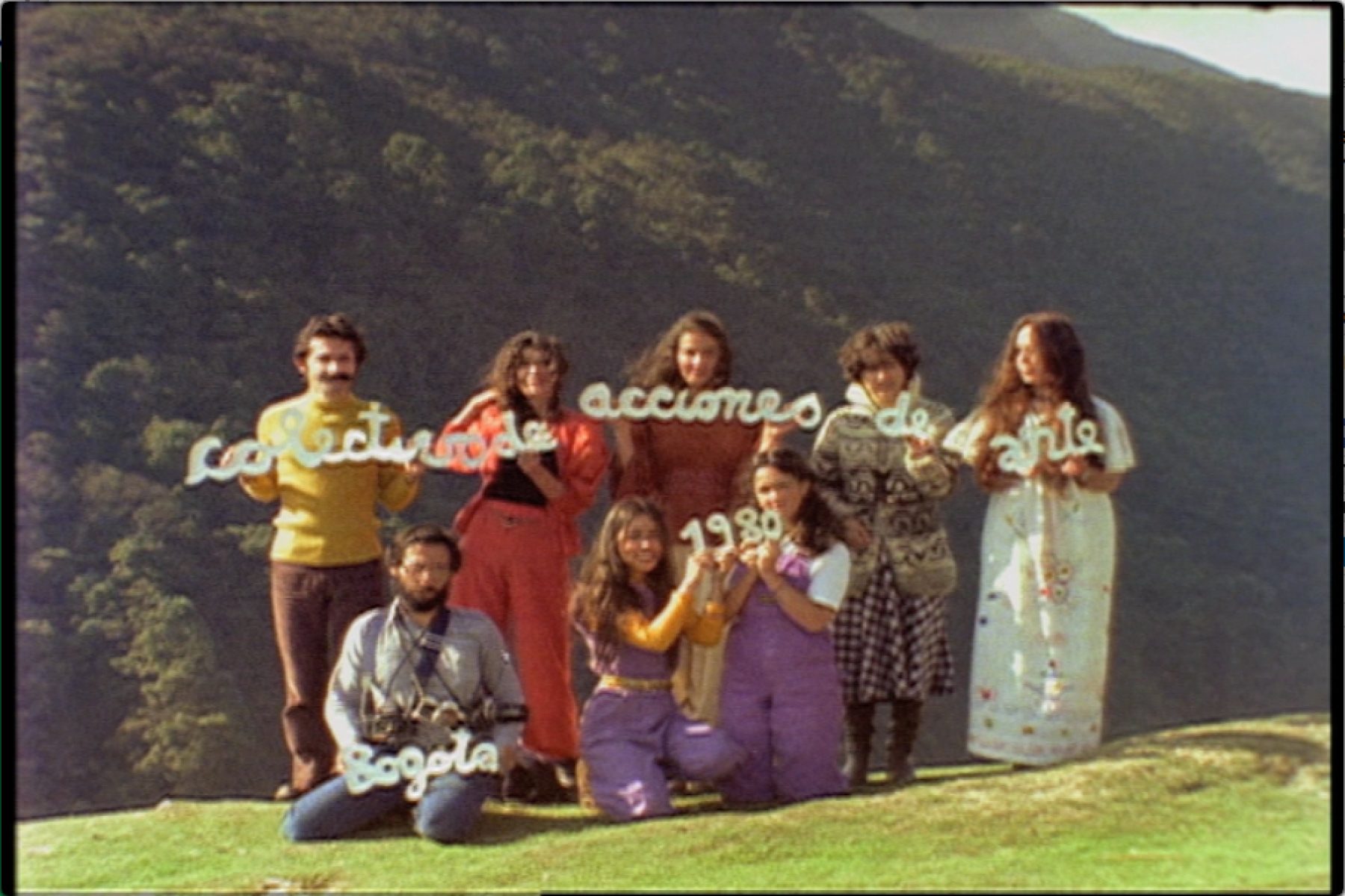This program happened on October 4, 2016.
Raúl Zurita and Cristóbal Lehyt: Conceptual Stumblings

Cristóbal Lehyt, Drama Projections, 2003 - ongoing. Photo by Jason Mandella Courtesy of El Museo del Barrio.
Center for Government and International Studies South, 1730 Cambridge St, Room S-250
David Rockefeller Center for Latin American Studies
A panel discussion on the rise and development of Chilean conceptual art will be followed with a performance-lecture by poet and conceptual artist Raúl Zurita and visual artist Cristóbal Lehyt.
A foundational figure in Chilean poetry and conceptual art, Zurita is best known for his poetry interventions, and installations reference bodies that are absent yet omnipresent, often drawing on local figures and conditions of the early years of the Pinochet dictatorship. Working in collaboration with Lehyt, an artist of a later generation, the performance-lecture transposes Zurita’s texts onto the present through a live reading and the creation of a new wall drawing by Lehyt made in response to them. While Zurita recites two poems—one from before the dictatorship, one from after—a live-stream projection will depict a performer tracing Lehyt’s drawings onto a gallery wall in the Carpenter Center. These simultaneous, yet physically distanced actions raise questions about the interpretation of artistic legacy over time, and emphasize the difficulty of expressing the specific context of 1970s Chile to an audience that did not experience first hand. The wall drawing will remain on display in the Sert Gallery as part of the exhibition Embodied Absence: Chilean Art of the 1970s Now.
Following an introduction by Professor Tom Cummins, a panel featuring curator Liz Munsell, Professor Sergio Delgado, and Fellow José Falconi will present on the multiyear and multivocal interdisciplinary research project on the origins of conceptual art in Chile, Conceptual Stumblings, supported by the David Rockefeller Center for Latin American Studies at Harvard.
Raúl Zurita
Raúl Zurita, born in 1950 in Santiago, Chile, is among the most celebrated, and decorated, living Latin American writers. During the Chilean dictatorship that lasted from 1973 to 1990, Zurita published a trilogy of books–Purgatory, Anteparadise, and The New Life–and co-formed the art collective CADA (Colectivo de Acción de Arte) that used performance as an act of political resistance. He is a Professor at the Universidad Diego Portales, Chile, and has been a Visiting Professor at Tufts University and California State University, Long Beach. Zurita was DRCLAS' RFK Visiting Scholar during Spring 2016 and taught the course “Poetry, Art and Adversity” in the Department of Romance Languages and Literatures.
Cristóbal Lehyt
Cristóbal Lehyt, born in 1973 in Santiago, Chile, now lives and works in New York. His work has been shown widely, including the Whitney Museum of American Art, America’s Society, Künstlerhaus Stuttgart, Kunsthaus Dresden, the Shanghai Biennale, the Mercosul Biennial, the Queens Museum, the Carpenter Center for the Visual Arts, and Artists Space. He has been awarded the John Simon Guggenheim Memorial Foundation Fellowship and the Art Forum Fellowship from Harvard University. Lehyt is included in the collections of the Museum of Modern Art, New York, and the Museo de Arte Contemporaneo, Santiago, Chile, among others. He is represented by Johannes Vogt Gallery in New York and Die Ecke in Santiago.
Archive
Explore more of our rich history through our archive.
